Last month, during International Open Data Day — which coincided with Code for America’s CodeAcross activities throughout the weekend of February 20-22nd — hundreds of civic hacking events around the world brought together community leaders, technologists, planners, government officials, and more.
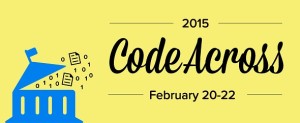
Participants identified common challenges and worked together to envision, design, and even prototype new kinds of solutions.
This year, Open Referral turned out to be a popular challenge! Here’s a roundup of some of the activities.
In Washington DC, leaders of the DC Open211 project gathering at the World Bank along with local government staff, social workers, and GIS experts. Lead anchor institution Bread for the City demonstrated its new community resource directory system, which they built within their Salesforce case management system using the Open Referral model. Open Data Day participants tested the data administration features of this ‘alpha’ directory system.
Meanwhile, other participants explored DC Open211’s parallel project, in which the DC city government is corralling all of its agencies into a shared 2-1-1 directory system (using their new iCarol platform). As both of these projects proceed, the civic hackers imagined the ways in which DC organizations and residents might query resource directory information from both public and non-profit sources, seamlessly and reliably.
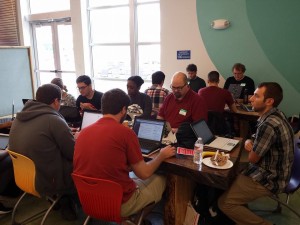
In Miami, Florida, the Code for Miami brigade — in partnership with the area’s 2-1-1 service provider, Switchboard of Miami — deployed the Ohana API in order to create a ‘sandbox’ for playing with Miami’s 2-1-1 directory data in an ‘open’ environment. The Code for Miami team has begun transforming Switchboard’s data into the Open Referral format, and loading it into Ohana. [See the project’s Github repo here; the basic API interface is set up here; and the code is hosted on Github here.
Among other potential projects, Miami’s civic hackers fielded one specific ‘use case’ from the research department at the Children’s Trust of Miami-Dade County. The Children’s Trust’s researchers are evaluating community health indicators, and one of their objectives is to display the various kinds of services within a given radius around specific schools. Code for Miami is already working on this feature, and while they’re at it, they’re aiming to display services around bus stops too.
This is why the Miami Open211 project was voted ‘Most Awesome’ by the event’s participants 🙂
In San Francisco, a team from the Code for San Francisco Brigade worked to adapt the Ohana platform to serve the San Francisco Adult Probation Department, which produces a 400-page resource directory for people returning from prison (see the Guide to Getting Out & Staying Out). Through this project, the Adult Probation Department hopes to make it easier to collect this information, while simultaneously yielding data that can be easily published on a user-friendly web page, and even in other referral systems across the city and region, in addition to their trusted printed resource book. See a screenshot of this prototype here:
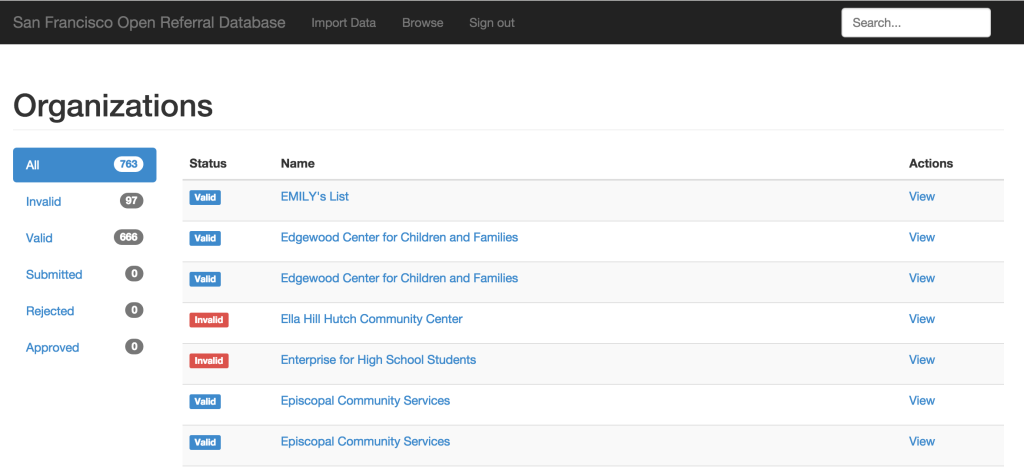
Over in the California state capital, Code for Sacramento deployed the Ohana API and developed their own front-end interface for it. Check out Benefisher, a project of a student group at California State University of Sacramento. Benefisher offers a novel approach to searching — one that automatically makes suggestions to users as they type, and in turn, learns from their behavior to improve future results. Benefisher also includes nifty features like visual indications as to whether services are open or closed.
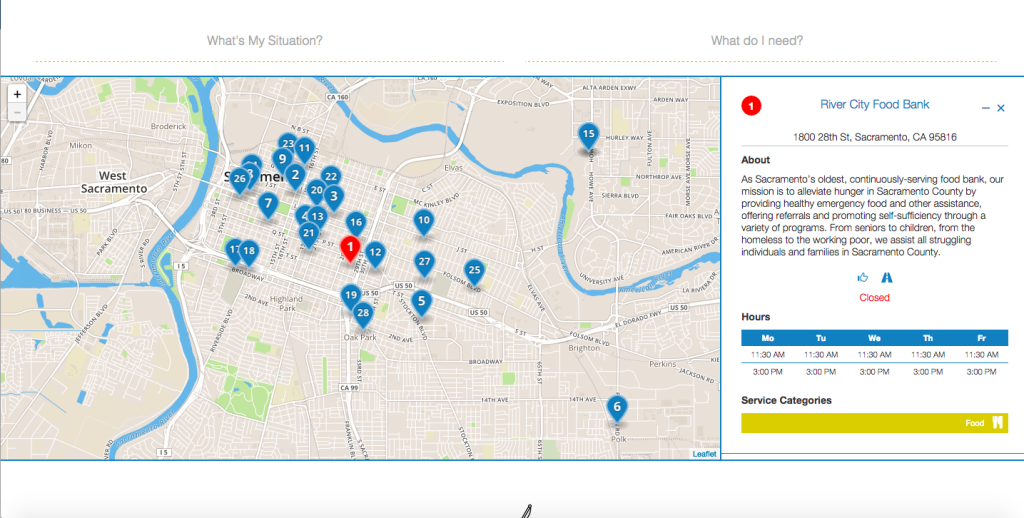
Meanwhile, at the Triangle Open Data Day in Raleigh, North Carolina, local government officials and civic hackers collaborate to redeploy the Ohana API and Ohana Web Search, and named it NC Connect. The NC Connect team populated their Ohana with resource directory data found on the websites of federal programs like SAMHSA (Substance Abuse and Mental Health Services Administration) and the USDA (for farmers markets that accept SNAP).
We all know that a challenge so complex as this can’t be solved in a day. All of these projects are just taking baby steps — in many cases, they are experimenting with functioning software (thanks to the Ohana API) yet only have ‘dummy data.’
Along the way, however, these activities give us an opportunity to build relationships, learn from each other, diagnose these complex problems, and imagine new solutions. By demonstrating what’s possible, prototypes like these can help set an agenda for conversations about a future in which it’s easier to develop creative new interfaces and re-use the same data in many ways. The breadth of participation around the country shows us that people are ready to get started!
Are you working with Ohana, the Open Referral model, and/or other kinds of community resource directory tools? We want to hear about it! Please share your story in the comments below, or reach out to [email protected].

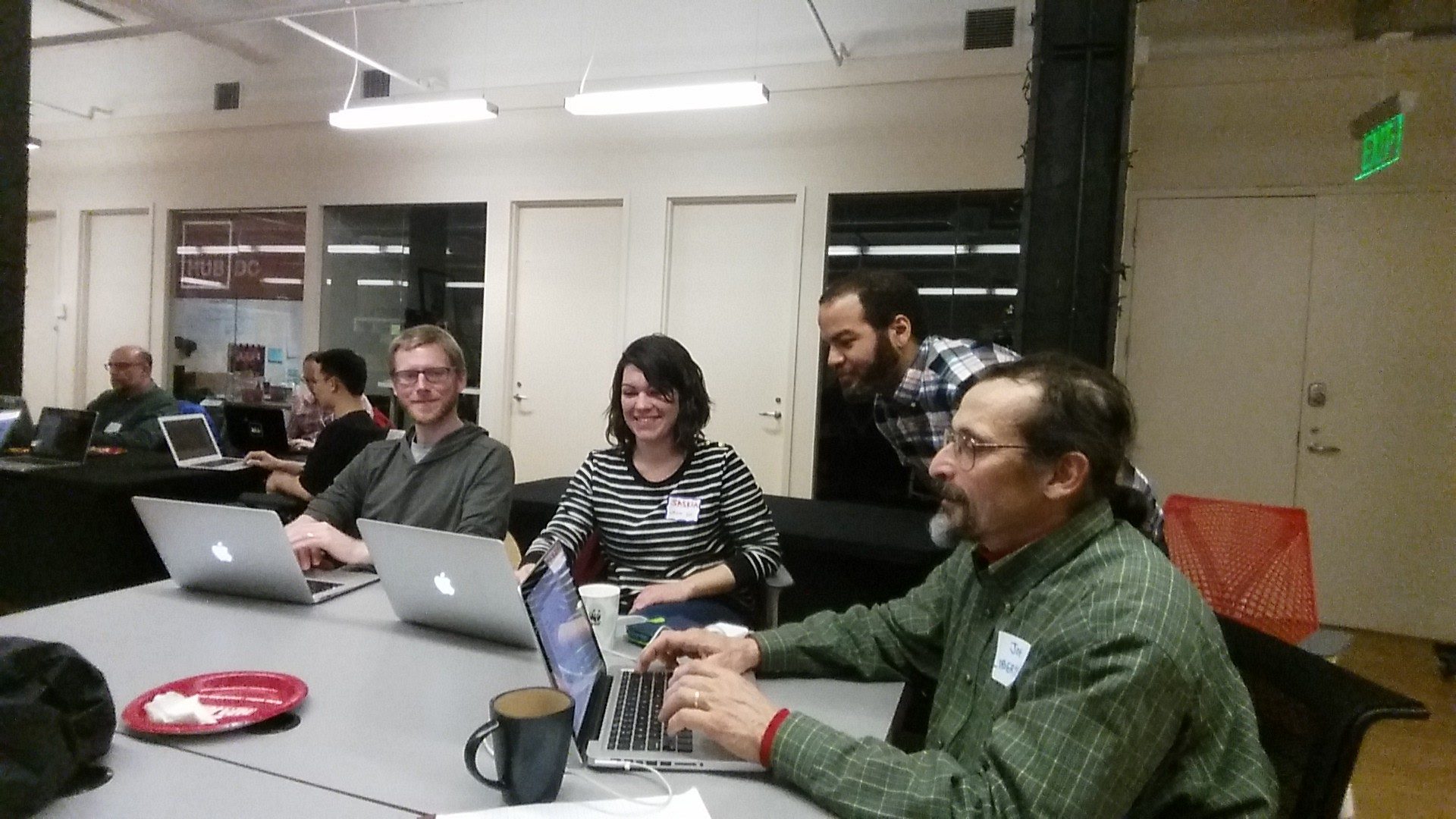
Leave a Reply